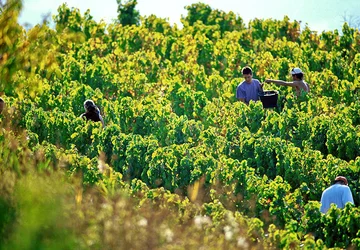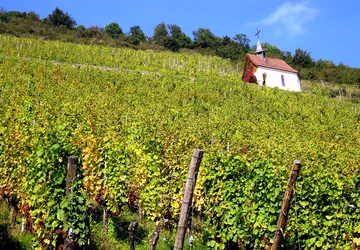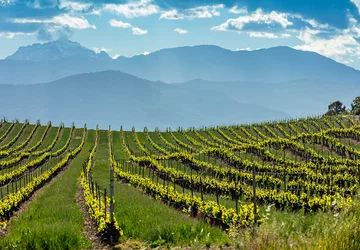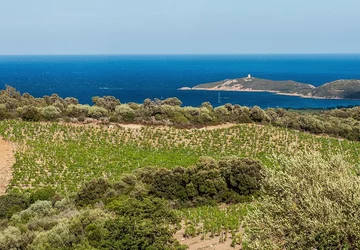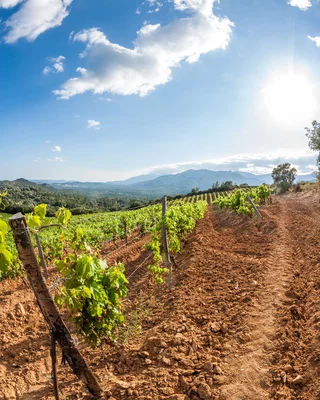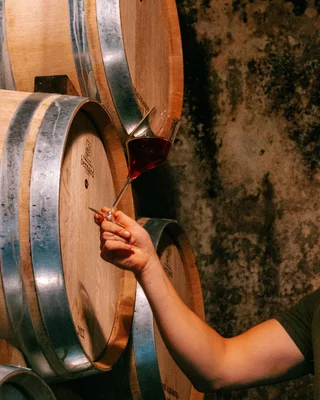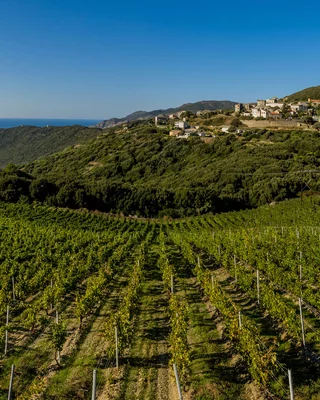Antoine Soria, sommelier
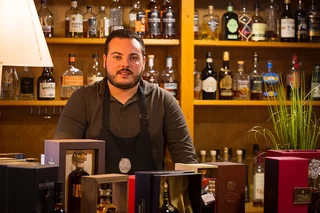
Antoine, you were elected Corsica's Best Sommelier at just 24 years of age. What made you decide to take up this profession?
It was a combination of factors that got me where I am today. Nothing predestined me for this profession, apart from my love and passion for gastronomy and wine. I'd say that right from my first internship at the Grand Hotel Cala Rossa*****, Patrick Fioramonti, who was the restaurant manager and also a great sommelier, took me under his wing and passed on all his knowledge and experience. This was a great motivation to progress. In any case, I'd like to thank him, because a lot of young people don't have this opportunity.
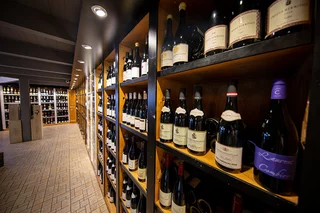
Could you tell us a little about your profession?
Sommelier is first and foremost the link between the winemakers, the land, the know-how and the customers. It's very important to be able to listen to consumers and guide them in their choices, so that they have a good time. I often say that the key to becoming a good sommelier is knowing how to constantly question yourself. Because in my field, things change all the time, just like a wine evolves.
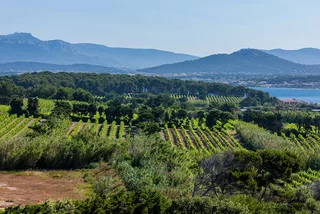
What was your career path?
I started out in a wine bar in Ghisonaccia, and then went on to do my BTS Hôtellerie training, which I did at the Lycée Fred Scamaroni in Bastia, a very high level of training with qualified teachers, and then at the Grand Hotel Cala Rossa*****. There I was able to get a real feel for the rigor of such a prestigious establishment. I climbed the ladder one by one to become 1st sommelier. Today I work at "l'Empreinte du Vin" in Bastia, a fast-growing business with 3 outlets in the region. We offer a lot of Corsican wines and wines from other French regions. But also spirits and delicatessen products.
What are the main grape varieties in Corsica, and are they spread across all the micro-regions?
The main grape varieties for reds: Nielucciu and Sciaccarellu, for whites: Vermentinu. Muscat: Muscat à petits grains. Not forgetting the others: Biancugentile, Barbarossa, Carcaghjolu Neru, Carcagholu Biancu, Muresconu, and many more... Most grape varieties are distributed, but Nielucciu is more widespread in Patrimoniu and Sciaccarellu in the south, and reigns supreme in the granite areas of the island, particularly around Ajaccio and Sartène, where it produces wines of great finesse. Vermentinu is found all over the island, as it is the king of Corsican white wines. All the others are scattered throughout Corsica according to the winemaker's wishes.
What are their specific flavors?
Nielucciu gives the wines a deep red color. It gives them finesse, density and bouquet: "a nose of hare's fur and licorice", releasing aromas of red fruits and violets with a hint of wood, which evolve with age into aromas of spices and maquis flowers. Sciaccarellu: from the adjective meaning "crisp" for a grape variety unique to Corsica. Aristocratic, supple reds with discreetly colored hues and a remarkable peppery bouquet: aromas of red fruits, spices, coffee and maquis flowers. Vermentinu : Also known as Malvoisie de Corse, this grape variety produces some of the finest white wines in the Mediterranean region. The wines are very typical dry whites, full-bodied, strong on the palate and often high in alcohol content.
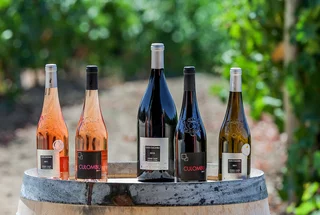
The color is pale with yellow-green highlights. On the nose, they offer a strong bouquet of floral, apple and almond aromas. Aleaticu, Minustellu and Carcaghjolu Neru reds: their entry into the PDO category is a real turning point! Riminese, Barbarossa, Murescona and Vintaiu... they're still confidential, but the privileged few who've had the chance to taste them assure us they're the up-and-coming nuggets of Corsican winegrowing.
Have our winemakers risen to the challenge of quality?
Yes, Corsican wines are increasingly qualitative, and the choice is tough. But the wealth of grape varieties and terroirs in Corsica means that everyone can find a Corsican wine to their taste. Prejudices are a thing of the past. Winegrowers have not only trained themselves, they have also invested in new equipment, both in the vineyard and in the cellar.
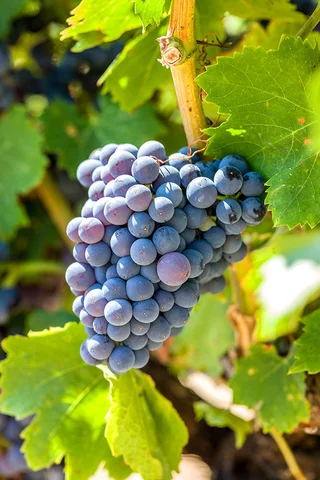
Organic" appellations are flourishing, but are they a guarantee of better quality?
Organic is not a guarantee of wine quality. It's a certification of respect for the environment. An organic wine is not necessarily better than another. But when the quality of the wine itself is good, and it has the organic label, it's even better for all consumers!
Is it still possible to find good wines at low prices?
Yes, absolutely. That's the aim of our business: to find the best value for money. That's why I invite consumers to open the door of their nearest wine shop. We don't just have "expensive" wines. We have wines at all prices, for all budgets.
Should we rely on medals and other awards?
On the whole, I'd say you can rely on them, but there are so many that some are more or less recognized today. There are real references, such as the "Guide de la Revue des Vins de France" and the "Guide Bettane et Desseauve".
Do you have any professional advice on how to make the right choice?
Open the door of your nearest wine merchant, he'll be able to advise you and understand your tastes so as to better guide you.
Has the Corsican Sommelier Association led to greater recognition of Corsican wines?
The association has been in existence for many years. And all the people who have been involved and continue to be involved today are helping to promote Corsican wine.
Can you suggest an itinerary for the Corsican Wine Route?
The entire coastline is ideal for itineraries. There are huge differences in terroirs and landscapes from one coast to another, from north to south. The wine route I'd suggest is the Patrimonio route. Leaving Bastia, head for Patrimonio via the Col de Teghime, with its breathtaking views over the Gulf of Saint Florent (sumptuous sunset). On the way back down to the village of Patrimoniu, you can admire these magnificent vineyards. You can then cross the village of Saint Florent to reach the Agriates desert, still part of the appellation. Patrimonio is the oldest of the appellations. This is the cradle of wine.
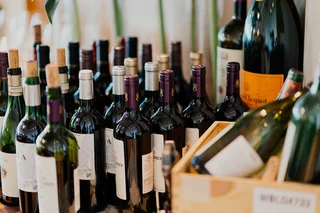
How do you see the 2019 harvest? Will it be a good year?
Having spoken to a number of winegrowers, all the juices that have entered the cellars are of very good quality. As for quantity, it depends on the different regions of Corsica, so it's a little less homogeneous.

For non-enthusiasts, a few alternatives to wine in Corsica:
- Cap Corse, a sweet, fragrant cooked wine with cinchona aromas, Port-style, perfect as an aperitif on the rocks.
- Muscat, sweet and tasty, can also accompany foie gras! Sparkling, it goes better with a delicate dessert.
- And, of course, the famous citron and myrtle liqueurs, and limoncellu, to be enjoyed after a good meal, with your eyes on the stars!
